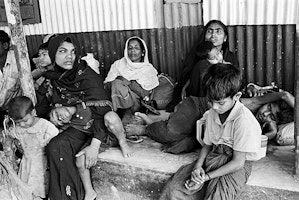We Are Rohingya
The Rohingya are from western Burma. As a Muslim minority group, they face systematic discrimination by the military regime. The Rohingya are not considered citizens and are unable to move, marry, or find jobs without obtaining permits or paying bribes. Without the basic rights afforded by citizenship, they are helpless to avoid arbitrary taxation, forced labor, or confiscation of their land.
In the 1990s, nearly a quarter of a million Rohingya fled into neighboring Bangladesh in hopes of escaping their persecution in Burma. The government of Bangladesh declared the Rohingya illegal immigrants and placed them in refugee camps.
Since the mass exodus two decades ago, 28,932 Rohingya still live in official camps in Bangladesh, with another 17,000 living without support in nearby makeshift camps. Around 200,000 more, denied official refugee status and labeled “illegal economic migrants,” are living in cities in Bangladesh. Those who fled to Bangladesh live without protection of the law and are restricted from formal education, reliable health care, and regular sources of food or income. Those who remain in Burma continue to face similar discriminations.
The Rohingya are neither citizens of Burma nor Bangladesh. With no resolution in sight, many young men choose to leave Bangladesh for third countries like Malaysia, Thailand, and even Saudi Arabia in order to send money home to impoverished families. The plight of the Rohingya demonstrates the discrimination, exploitation, and abuse that people face when they are rendered stateless.
The Open Society Burma Project is documenting the plight of stateless Rohingya via reports and photography. The project also provides protection for refugees and migrants through legal aid and advocacy.











